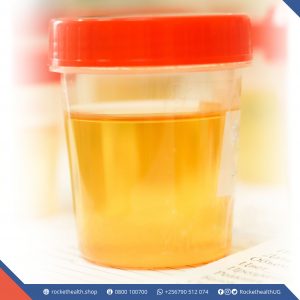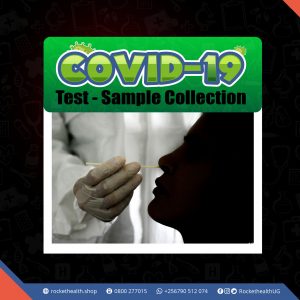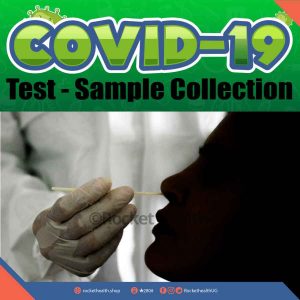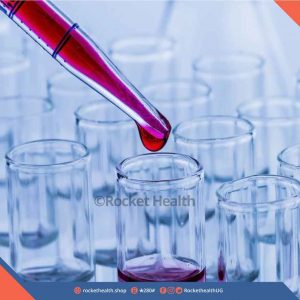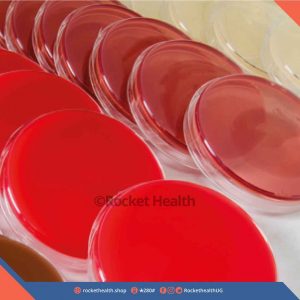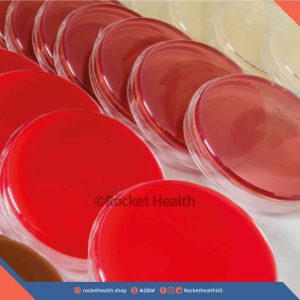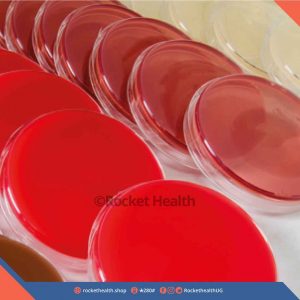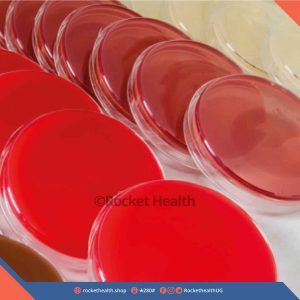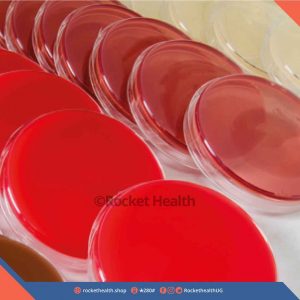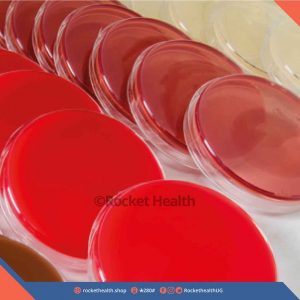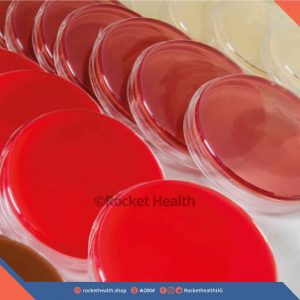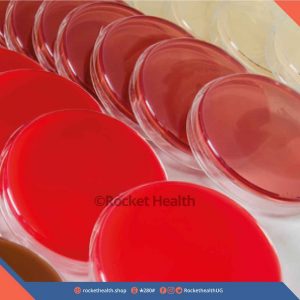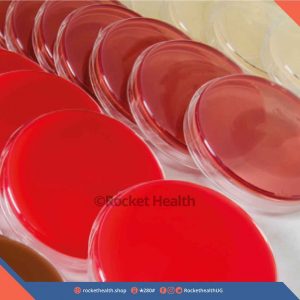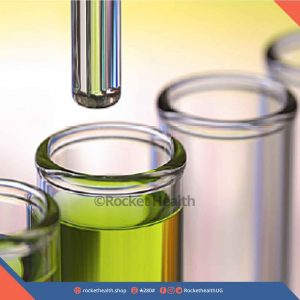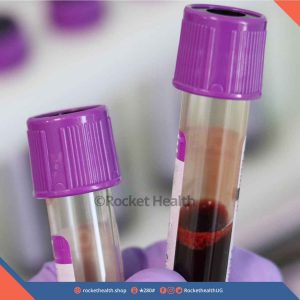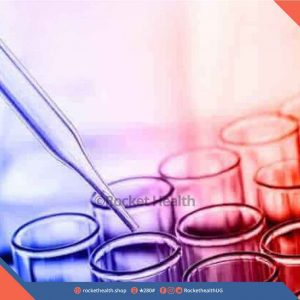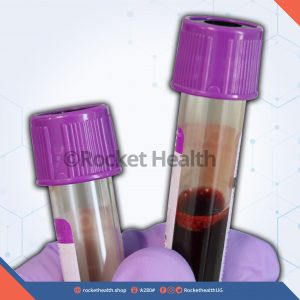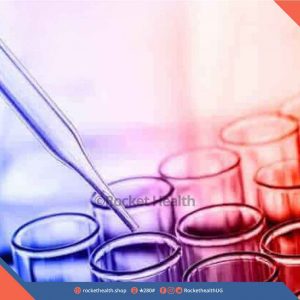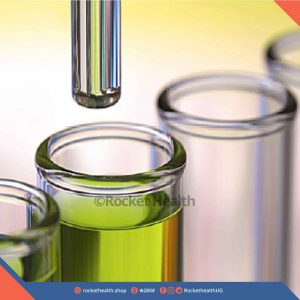Lab Results Tele-Consultation
Lab Results Tele-Consultation is meant for customers who order lab tests services and want our rocket health doctors to call and explain for them the results.
UGX 10,000Lab Results Tele-Consultation
UGX 10,000COVID-19 Antigen Test (Rapid) in Kampala
This is a rapid test used to screen for Covid 19 infection when experiencing the typical Covid19 symptoms such as runny nose, headaches, general weakness, sore throat, chest pain among others. Test results will be ready in 6 hours.
Rocket Health doctors will call to share results and give medical advise.
If one tests positive, one may choose to enroll onto our COVID-19 home-based care program.
UGX 40,000COVID-19 Antigen Test (Rapid) in Kampala
UGX 40,000COVID-19 PCR Test in Kampala
Rocket Health is coordinating COVID-19 sample collection and having tests run in Kampala, Uganda by Ministry of Health accredited laboratories. Test results will be ready within 8 hours. This is the recommended test for international travel.
Rocket Health doctors will call to share test results and give medical advice.
If one tests positive, one may choose to enroll onto our COVID-19 home-based care program.
UGX 200,000COVID-19 PCR Test in Kampala
UGX 200,000Thyroid- Stimulating Hormone (TSH)
This is a blood test that measures the amount of Thyroid Stimulating Hormone in the blood.
Blood.
If you take thyroid hormone as treatment for thyroid disease, it is recommended that your blood sample be drawn before you take your dose for that day. Acute illness may also affect thyroid testing results so it is generally recommended that thyroid testing be avoided in hospitalized patients. Inform the doctor if you are on any medications including multivitamins and supplements, have any allergies or underlying medical conditions before this test.
To help diagnose thyroid disorders and to monitor treatment of hypothyroidism and hyperthyroidism;sometimes a TSH test is used to screen newborns for congenital hypothyroidism.
UGX 45,000Thyroid- Stimulating Hormone (TSH)
UGX 45,000Swab culture and sensitivity
A culture is a test to find the exact germs (such as bacteria or a fungus) that is causing an infection. A sensitivity test checks to see what kind of medicine, such as an antibiotic, will work best to treat the illness or infection.
Throat swab, Pus swab, Wound swab, Environmental swab.
Do not take antibiotics for atleast 3 days before the test.
A test that demonstrates the presence of disease causing organisms in the body. Culture and sensitivity demonstrates the presence of disease causing organisms in the body and to identify which medicines can best eliminate them. In this test, disease causing organisms (most commonly bacteria and fungi) are grown in the laboratory (cultured) and medicines tried on them to determine which ones best work on them (sensitivity testing).
UGX 60,000Swab culture and sensitivity
UGX 60,000Ascitic fluid culture and sensitivity
A culture is a test to find the exact germs (such as bacteria or a fungus) that is causing an infection. A sensitivity test checks to see what kind of medicine, such as an antibiotic, will work best to treat the illness or infection.
Ascitic fluid (abdominal fluid).
Do not take antibiotics for atleast 3 days before the test.
A test that demonstrates the presence of disease causing organisms in the body. Culture and sensitivity demonstrates the presence of disease causing organisms in the body and to identify which medicines can best eliminate them. In this test, disease causing organisms (most commonly bacteria and fungi) are grown in the laboratory (cultured) and medicines tried on them to determine which ones best work on them (sensitivity testing).
UGX 60,000Ascitic fluid culture and sensitivity
UGX 60,000CSF Culture and sensitivity
A culture is a test to find the exact germs (such as bacteria or a fungus) that is causing an infection. A sensitivity test checks to see what kind of medicine, such as an antibiotic, will work best to treat the illness or infection.
Celebralspinal fluid (CSF).
Do not take antibiotics for atleast 3 days before the test.
A test that demonstrates the presence of disease causing organisms in the body. Culture and sensitivity demonstrates the presence of disease causing organisms in the body and to identify which medicines can best eliminate them. In this test, disease causing organisms (most commonly bacteria and fungi) are grown in the laboratory (cultured) and medicines tried on them to determine which ones best work on them (sensitivity testing).
UGX 100,000CSF Culture and sensitivity
UGX 100,000Pleural fluid culture and sensitivity
A culture is a test to find the exact germs (such as bacteria or a fungus) that is causing an infection. A sensitivity test checks to see what kind of medicine, such as an antibiotic, will work best to treat the illness or infection.
Pleural fluid (fluid in the chest).
Do not take antibiotics for atleast 3 days before the test.
A test that demonstrates the presence of disease causing organisms in the body. Culture and sensitivity demonstrates the presence of disease causing organisms in the body and to identify which medicines can best eliminate them. In this test, disease causing organisms (most commonly bacteria and fungi) are grown in the laboratory (cultured) and medicines tried on them to determine which ones best work on them (sensitivity testing).
UGX 60,000Pleural fluid culture and sensitivity
UGX 60,000Sputum ZN, Gram stain + culture and sensitivity
A culture is a test to find the exact germs (such as bacteria or a fungus) that is causing an infection. A sensitivity test checks to see what kind of medicine, such as an antibiotic, will work best to treat the illness or infection.
Sputum.
Do not take antibiotics for atleast 3 days before the test.
A test that demonstrates the presence of disease causing organisms in the body. Culture and sensitivity demonstrates the presence of disease causing organisms in the body and to identify which medicines can best eliminate them. In this test, disease causing organisms (most commonly bacteria and fungi) are grown in the laboratory (cultured) and medicines tried on them to determine which ones best work on them (sensitivity testing).
UGX 70,000High vaginal swab culture and sensitivity
A culture is a test to find the exact germs (such as bacteria or a fungus) that is causing an infection. A sensitivity test checks to see what kind of medicine, such as an antibiotic, will work best to treat the illness or infection.
Vaginal swab.
Do not take antibiotics for atleast 3 days before the test.
A test that demonstrates the presence of disease causing organisms in the body. Culture and sensitivity demonstrates the presence of disease causing organisms in the body and to identify which medicines can best eliminate them. In this test, disease causing organisms (most commonly bacteria and fungi) are grown in the laboratory (cultured) and medicines tried on them to determine which ones best work on them (sensitivity testing).
UGX 60,000High vaginal swab culture and sensitivity
UGX 60,000Stool analysis + Culture and sensitivity
A culture is a test to find the exact germs (such as bacteria or a fungus) that is causing an infection. A sensitivity test checks to see what kind of medicine, such as an antibiotic, will work best to treat the illness or infection.
Stool.
Do not take antibiotics for atleast 3 days before the test.
A test that demonstrates the presence of disease causing organisms in the body. Culture and sensitivity demonstrates the presence of disease causing organisms in the body and to identify which medicines can best eliminate them. In this test, disease causing organisms (most commonly bacteria and fungi) are grown in the laboratory (cultured) and medicines tried on them to determine which ones best work on them (sensitivity testing).
UGX 60,000Stool analysis + Culture and sensitivity
UGX 60,000Blood culture and sensitivity (Anaerobic)
A culture is a test to find the exact germs (such as bacteria or a fungus) that is causing an infection. A sensitivity test checks to see what kind of medicine, such as an antibiotic, will work best to treat the illness or infection.
Blood.
Do not take antibiotics for atleast 3 days before the test.
A test that demonstrates the presence of disease causing organisms in the body. Culture and sensitivity demonstrates the presence of disease causing organisms in the body and to identify which medicines can best eliminate them. In this test, disease causing organisms (most commonly bacteria and fungi) are grown in the laboratory (cultured) and medicines tried on them to determine which ones best work on them (sensitivity testing).
UGX 82,000Blood culture and sensitivity (Anaerobic)
UGX 82,000Blood culture and sensitivity (Aerobic)
A culture is a test to find the exact germs (such as bacteria or a fungus) that is causing an infection. A sensitivity test checks to see what kind of medicine, such as an antibiotic, will work best to treat the illness or infection.
Blood.
Do not take antibiotics for atleast 3 days before the test.
A test that demonstrates the presence of disease causing organisms in the body. Culture and sensitivity demonstrates the presence of disease causing organisms in the body and to identify which medicines can best eliminate them. In this test, disease causing organisms (most commonly bacteria and fungi) are grown in the laboratory (cultured) and medicines tried on them to determine which ones best work on them (sensitivity testing).
UGX 72,000Blood culture and sensitivity (Aerobic)
UGX 72,000Urine culture and sensitivity
A culture is a test to find the exact germs (such as bacteria or a fungus) that is causing an infection. A sensitivity test checks to see what kind of medicine, such as an antibiotic, will work best to treat the illness or infection.
Urine.
Do not take antibiotics for atleast 3 days before the test.
A test that demonstrates the presence of disease causing organisms in the body. Culture and sensitivity demonstrates the presence of disease causing organisms in the body and to identify which medicines can best eliminate them. In this test, disease causing organisms (most commonly bacteria and fungi) are grown in the laboratory (cultured) and medicines tried on them to determine which ones best work on them (sensitivity testing).
UGX 60,000Urine culture and sensitivity
UGX 60,000Testosterone
This test measures the level of testosterone in the blood. Testosterone is the main sex hormone (androgen) in men. It is responsible for male physical characteristics. Although it is considered to be a “male” sex hormone, it is present in the blood of both men and women.
Blood.
Early morning samples are preferred. A woman’s sample should be collected at specific times during her menstrual cycle. Inform the doctor if you are on any medications, have any allergies or underlying medical conditions before this test.
Testosterone is mainly produced by special endocrine tissue (the Leydig cells) in the male testicles. It is also produced by the adrenal glands in both males and females and, in small amounts, by the ovaries in females.
UGX 50,000Testosterone
UGX 50,000Serum Crag
Serum Crag is a test that detects cryptococcal antigen (abbreviated “CrAg”) in blood, an indicator of cryptococcal meningitis infection.
Blood.
No specific patient preparation protocol required. Inform the doctor if you are on any medications, have any allergies or underlying medical conditions before this test.
Cryptococcal infection usually presents as meningitis, which is a swelling of the meninges,the tissues that protect the brain and spinal cord. It is caused by C. neoformans which enters the human body via the respiratory tract. Elimination of C. neoformans is through cell mediated immunity, with the participation of neutrophils, macrophages and cytotoxic T lymphocytes. In the face of immunodeficiency(HIV infection, pregnancy etc), control of the infection fails, the fungus may then disseminate to the central nervous system or other organs. Definitive diagnosis is confirmed by the culture of specimens, often the cerebrospinal fluid (CSF) or blood, and sometimes in respiratory secretions The condition requires hospitalization and treatment with the intravenous (IV) antifungal medication amphotericin B.
UGX 35,000Serum Crag
UGX 35,000Semen Analysis
A complete semen analysis measures the quantity and quality of the fluid released during ejaculation often used in the evaluation of male infertility.
Semen.
For infertility testing, refrain from having sex or masturbation for 2-5 days before sample collection; carefully follow instructions provided.
Semen is a viscous, whitish liquid that contains sperm and the products from several glands. In an evaluation of a man’s fertility, each aspect of the semen analysis is considered i.e. viscocity, volume, motility, morphology, sperm concentration, semen PH, fructose, white blood cells, clamping as well as the findings as a whole. Semen from a man can vary widely from sample to sample. Abnormal results on one sample may not indicate a cause of infertility, and multiple samples may need to be tested before a diagnosis is made
UGX 120,000Semen Analysis
UGX 120,000Reticulocyte Count
A reticulocyte test determines the number and/or percentage of reticulocytes( Immature Red Blood Cells) in the blood and is a reflection of recent bone marrow function or activity.
Blood.
No specific patient preparation protocol required. Inform the doctor if you are on any medications, have any allergies or underlying medical conditions before this test.
Red blood cells are produced in the bone marrow, where blood-forming (hematopoietic) stem cells differentiate and develop, eventually forming reticulocytes and finally becoming mature RBCs. A variety of diseases and conditions i.e hemorrhage, hemolysis, bone marrow disorder, kidney disease can affect the production of new RBCs and/or their survival, in addition to those conditions that may result in significant bleeding. These conditions may lead to a rise or drop in the number of RBCs and may affect the reticulocyte count.
UGX 25,000Reticulocyte Count
UGX 25,000Prothrombin Time (INR)
The prothrombin time (PT) is a test that helps evaluate your body’s ability to appropriately form blood clots.
Blood.
None needed, however if you are receiving anticoagulant therapy, the blood sample should be collected before taking your daily dose.
A PT measures the number of seconds it takes for a clot to form in your sample of blood after substances (reagents) are added. The PT is often performed along with a partial thromboplastin time (PTT) and together they assess the amount and function of proteins called coagulation factors that are an important part of proper blood clot formation. For people taking warfarin, most laboratories report PT results that have been adjusted to the INR. A prolonged PT means that the blood is taking too long to form a clot, this may be caused by conditions such as liver disease, vitamin K deficiency, or a coagulation factor deficiency (e.g., factor VII deficiency).
UGX 35,000Prothrombin Time (INR)
UGX 35,000Luitenising Hormone
This test measures the amount of luteinizing hormone in the blood. (LH) is a hormone associated with reproduction. Its stimulation of either ovary or testicles results in the release of an egg from the ovary (ovulation) in women or testosterone production in men.
Blood.
Early morning samples are preferred. A woman’s sample should be collected at specific times during her menstrual cycle. Inform the doctor if you are on any medications, have any allergies or underlying medical conditions before this test.
LH is produced by the pituitary gland. In women of childbearing age, several hormones (LH, follicle-stimulating hormone (FSH), estrogen and progesterone) rise and fall in a specific sequence during each menstrual cycle. In men, LH stimulates Leydig cells in the testicles to produce testosterone. In infants and children, LH levels rise shortly after birth and then fall to very low levels. Results of an LH test are typically considered with results of other hormone tests, such as FSH, estrogens, and/or testosterone.
UGX 50,000Luitenising Hormone
UGX 50,000

